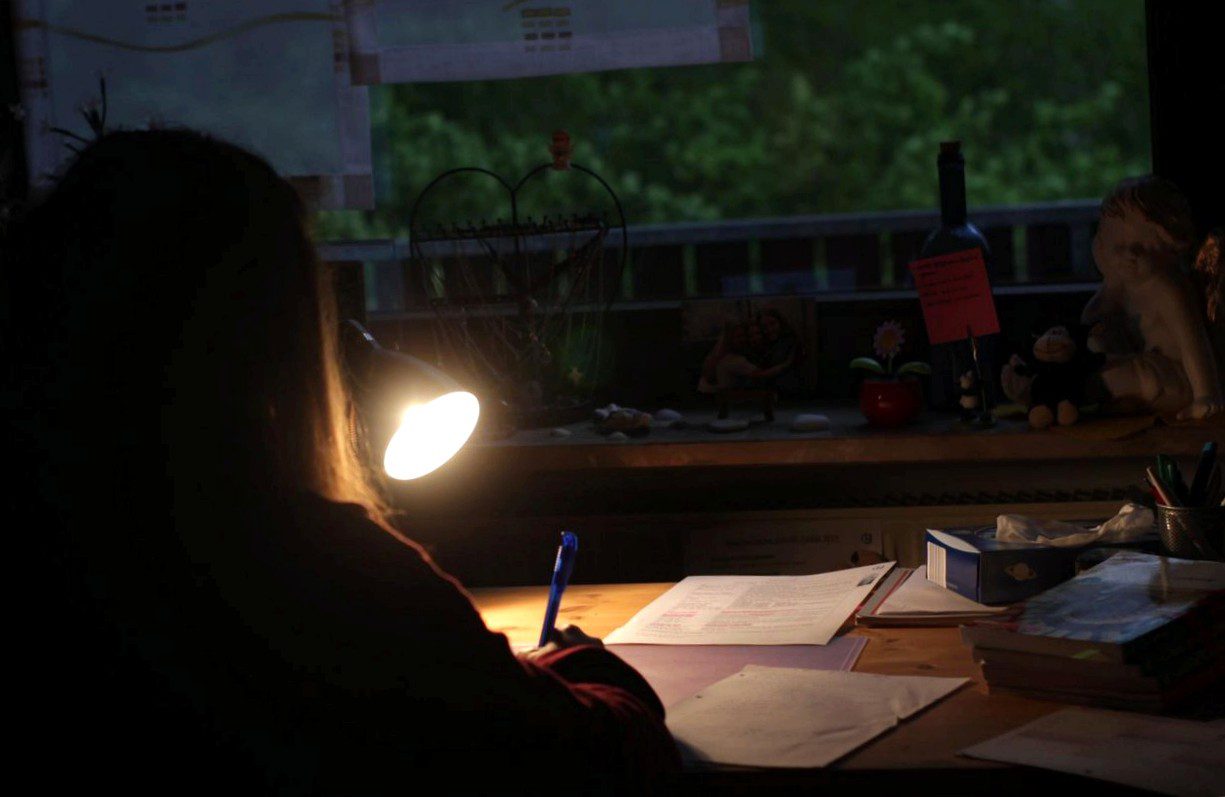
Julia lorz sits at her desk. Around her, books and notes are piled high like palm trees on an island. But it’s certainly not paradise for julia: the student is about to take her school-leaving exam. It’s monday evening, in a few hours she will take her german high school diploma at gymnasium hochstadt. She is visibly nervous: "i’m very excited because you’ve never written anything for so long before and you have no experience of what an abitur is like."
She started preparing for her exams a month ago. Time and again during her school years, but especially during the past easter break, she spent entire days at her desk on the island. In the last school semester, students had to study for their exams in a short period of time. "It was hard to get up and study for the abitur, too", says julia.
But german is the subject she is most afraid of. In other federal states, for example, it is possible to opt out of an abitur in math. Could she also deselect one, it was german. "I find it partly already unfair, because the high school diploma is regarded as equivalent at universities", says the high school graduate still on the eve.
Unification not in sight
The bavarian abitur is considered the most difficult in all of germany. But the failure rates in bavaria are average. According to the conference of education ministers, 3.5 percent of students here failed to pass their school-leaving exams in 2017. For comparison: in mecklenburg-vorpommern there were seven.
Hochstadt’s principal, roland deinzer, puts it into perspective: "it would be more important to look at the focus of what you have to learn?" Every student has to work hard for his or her baccalaureate in each state. If it’s the highest school-leaving qualification in germany, then the abitur must also be a mark of quality. In the past few years, attempts have been made to harmonize the baccalaureate more and more. But he doesn’t believe that there will ever be a standardized abitur throughout germany: "total comparability doesn’t exist now, and it doesn’t exist in bavaria either. That’s something worth striving for, but we always fall short of it."
The good feeling afterwards
Around ten hours later, julia is standing in front of the hochstadt aischtalhalle. The students are standing in small groups, talking and speculating about which texts could go on the program. You still have half an hour, then you will sit in your seat and write your first school-leaving exam. "I’m afraid of not understanding the tasks", says julia, who has had almost consistently good grades at school so far. Your goal for the german abi: at least five points. Then the students are asked to come into the gymnasium, the paper sheets are already ready, table after table is lined up. At the front sit the teachers, who will watch them for the next 315 minutes. But they also encourage the 98 high school graduates. Small lucky charms lie on the tables next to pencil cases and water bottles.
More than five hours later, these are finished, because the first written exam is over. "It went better than expected, I have a good feeling", says julia shortly after the exam. "I am now quite relieved and glad that it is over." She has written a drama analysis. But she didn’t have long to look forward to it, because she already had math on friday. Next week, the high school graduates will write their third, freely selectable, subject before they have to take two oral examinations. But the results will remain secret until the end, all scores will be announced together. And then julia can trade in her desk island for a real oasis of relaxation.